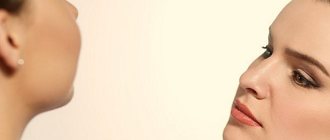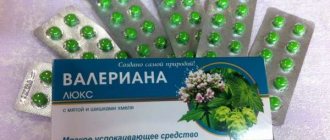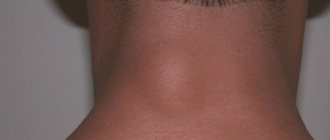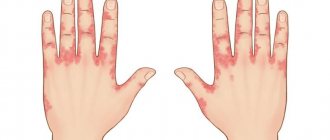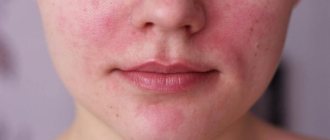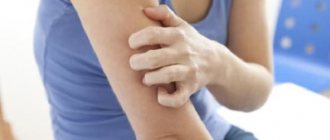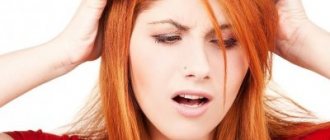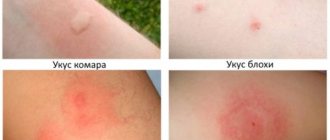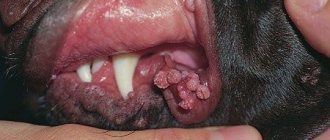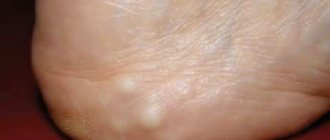Itchy scalp is a feeling of discomfort that makes you want to scratch the irritated area.
This sensation can be either temporary or permanent, and can cause serious inconvenience to a person. Most often, the head itches due to exposure of the skin to some external irritant, although it is possible that the symptom was provoked by one or another disease.
Regular itching of the scalp cannot be ignored, as it indicates a problem in the body. A mandatory visit to a trichologist requires the appearance of rashes and peeling on the scalp.
Senile itch in the elderly
As a person ages, his skin begins to require special care. The skin of older people becomes more fragile and thin. Loss of elasticity, previous moisture – all this increases its sensitivity to external influences. Functions that protect the skin work worse, and this happens due to physiology.
Metabolic processes become slower, skin cells are regenerated at slower speeds. The resources that the skin needs so much to successfully perform its primary functions are supplied in ever smaller quantities. But the skin must repel infections, normalize the body’s temperature balance, and take part in oxygen exchange.
Diagnostics
Diagnostic methods used to determine the pathology that causes itching of the head:
- Fluorescent diagnostics using a Wood's lamp - an ultraviolet lamp with a filter. Prescribed for various mycoses and dermatoses.
- Histological examination of a piece of affected skin. Indicated for psoriasis.
- Dermatoscopy is performed if favus or seborrheic dermatitis is suspected.
- Spectral examination of hair for microelements will help to find out the cause of the development of seborrheic dermatitis.
- Microscopic examination of biomaterial, for example, the contents of a hair follicle, for the detection of subcutaneous demodex mites. Prescribed for suspected demodicosis.
- Microscopy of scrapings from smooth skin for pathogenic fungi. The method is used for trichophytosis, folliculitis, microsporia and many other fungal diseases.
- Bacteriological seeding of discharge/scraping for microflora to identify the type of pathogen and determine its susceptibility to antibiotics, antimycotics or other chemotherapeutic drugs. The study is necessary to identify folliculitis, trichophytosis, etc.
- Study of the patient's hormonal background. Tests are necessary to determine the cause of itching of the scalp.
To find out the cause of itching, determine the necessary diagnostic measures and develop treatment tactics, you need to contact one of the doctors - a dermatologist, trichologist, mycologist or dermatocosmetologist. Based on the etiology of the disease, it may be necessary to consult other specialists - an endocrinologist, an allergist or a neurologist.
At the first stage, the doctor conducts a physical examination: finds out the possible causes of itching, as well as its characteristics - duration and intensity, examines the affected skin. At the second stage, he prescribes various studies, the results of which can confirm the presumptive diagnosis.
Treatment for itchy scalp
Since itching of the scalp is just a consequence or a symptom, to treat it in 1 day it is necessary to identify and eliminate the cause that caused it. In this case, you need the help of a specialist who, after a complete diagnosis (various studies taking into account clinical manifestations and the specific case), will prescribe the optimal treatment.
Treatment of seborrhea is a long and complex process. Proper nutrition, avoidance of stress, hormonal balance (disturbances can provoke seborrhea), adherence to sleep and rest schedules are important in the treatment of the disease. In addition, it is important for patients to keep their scalp clean.
For dry skin, nourishing masks will be useful; they will have a softening effect and improve microcirculation. Also of great importance is compliance with the drinking regime (at least one and a half liters of water per day), which will prevent dehydration. If the itching is caused by a lack of vitamins and microelements, you should take a course of vitamins (Vitrum, Complivit, Alphabet, Centrum, etc.).
If the cause of the itching turns out to be elementary parasites (for example, lice), then to remove them you should purchase modern effective drugs against such parasites at the pharmacy - Nittifor solution or cream, Para Plus aerosol, Pediculen lotion. After removing lice, you should also get rid of nits by using a fine comb. It is also recommended to check other family members for the presence of lice, and the patient’s clothes and bedding should be boiled and ironed with a hot iron.
In this case, resorting to traditional methods (using, for example, kerosene) is not recommended; they not only will not help, but can also cause harm. Unlike lice, it is somewhat more difficult to determine the presence of demodicosis, but the doctor will do it in a matter of seconds. To treat demodicosis, you must consult a doctor; only he can prescribe medications.
Muscle tension
Surprisingly, excessive muscle tension can provoke redness on the skin and itching of the head. Most often, this disease occurs due to tension in the muscles of the neck, shoulders, back and head. What is the mechanism of such itching? The fact is that muscle tension leads to poor blood circulation in the scalp and can even cause microtrauma to muscle fibers, resulting in inflammation. In especially severe cases, itchy skin may appear against the background of active hair loss.
To combat this disease, medical assistance is needed. Here you cannot do without intensive therapy aimed at relaxing muscle fibers, restoring blood circulation and eliminating the inflammatory process.
Ointments to relieve itchy scalp
To get rid of itchy scalp, there are special ointments:
- Nezulin is a cream-gel based on plant extracts, essential oils of mint, lavender and basil with the addition of D-panthenol. Nezulin can be used for allergic reactions and scalp irritation. The drug can relieve itching caused by insect bites.
- Benzyl benzoate - available in the form of an emulsion for external use. Allows you to get rid of mite infestations, including the parasites that cause scabies.
- Boric ointment is intended for the treatment of pediculosis. The product must be applied to the scalp and left for half an hour. Sulfur ointment has a similar effect.
- Advantan – ointment, cream and fatty ointment. This remedy allows you to get rid of seborrhea and microbial eczema; it is prescribed for contact dermatitis and photodermatitis. I recommend applying a greasy ointment to very dry areas of the skin with severe itching.
Causes
Itching cannot appear on its own. Most often, its appearance is provoked by the following factors:
- the appearance of lice or mites;
- seborrhea;
- allergies to used hair care products (shampoos, balms, styling gels and mousses, etc.)
- allergy to paint;
- allergy to detergents used to wash clothes and bed linen;
- dry scalp;
- fungal diseases.
The causes of itchy scalp and hair loss can be very different, ranging from improper hair care to fungal and infectious diseases. Let's look at why your head may itch and how to get rid of this ailment.
An itchy scalp can be caused by various reasons. Due to the same reasons, hair loss often occurs, dry scalp, red spots, etc. can also occur. Also, all this is often accompanied by a burning sensation and severe dandruff. Among the reasons causing hair loss and flaking of the scalp:
Nervous stress is usually accompanied by an active release of adrenaline into the blood. As a result, its excess leads to spasm and muscle tension, which is why the whole body begins to itch, including an itchy head.
- Excessive muscle tension
- Parasite activity. When parasites attack a person, the body's allergic reaction to toxins (excrement, saliva, gland secretions) causes itching.
- Scabies and pediculosis. You can detect and confirm this reason yourself using a magnifying glass that has a fairly strong magnifying glass. Lice usually look like whitish and even translucent insects of very small sizes. Of course, it will not be possible to see ticks with a magnifying glass, but it is possible to see their passages, which the parasites gnaw in the scalp. To notice this, the suspicious area is smeared with a stick or cotton wool with iodine. The layer of the epidermis where the scabies channels pass is looser. Because of this, it is saturated with iodine more intensely, and the holes become noticeable. They resemble thin brown scratches - straight or curved. Scabies only affect children's scalps; these parasites do not bother adults. If your child constantly scratches his head, and at the same time his nails begin to peel off and crumble, then the itching directly indicates that scabies is developing.
- Demodecosis. This is an infection of smooth skin and hair by a microscopic mite. Obvious signs of the disease: itching on the face, forehead, chin, ears.
- Muscle tension of the skin. If the back muscles are overstrained, blood circulation in the back of the head deteriorates, and the result is itching.
- The head may also itch due to age-related changes and hormonal changes. In this case, the itching begins gradually and increases, the scalp and hair appear oily or, conversely, excessive dryness.
To find out the cause of itching, you need to undergo a bacterioscopy. This procedure is performed by a dermatologist or infectious disease specialist.
Video:
Seborrhea (colloquially dandruff) is a scalp disease manifested in excessive exfoliation of the superficial epidermis with inflammatory changes in the underlying tissues. The cause may be fungal infection of the sebaceous glands, hormonal changes in the body, chronic gastrointestinal diseases and nervous system disorders.
Itching of the scalp can be of neurogenic origin, that is, the result of prolonged stress or short-term overload of the nervous system. However, it is not localized, is not associated with the influence of external factors, and intensifies with an increase in the level of emotions. As a rule, this diagnosis is made after excluding all the pathologies described above.
The treatment tactics in this case are determined by a neurologist; it consists of taking sedatives and local therapy with anti-inflammatory drugs with a sedative effect.
In general, the hair and skin on the head are a clear indicator of health, and therefore, with a normal lifestyle and diet, they look excellent.
Itching must be combated, otherwise additional symptoms may appear: peeling skin and hair loss. This occurs due to thinning of the skin due to constant scratching, and cracks begin to form. The skin stops nourishing the hair, it weakens and falls out. What to do if there is itching on the scalp? First you need to identify its cause.
Parasites
One of the most common causes of itchy scalp is infestation with lice (pediculosis) or mites (demodex). Lice live in hair and feed on blood by biting through the skin.
Mites live in the scalp itself, which causes peeling of the scalp and irritation, accompanied by itching. While lice can be seen with the naked eye, the mites are too small for that.
That is why it is important to contact a dermatologist or trichologist with the problem.
Fungal infection
There are many fungi living on the body that do not harm a person in good health. But with weakened immunity, they affect the skin, causing discomfort. If your scalp itches, a fungal infection is one of the possible causes, which only a doctor can confirm.
Dermatophytosis (lichen) is a special case of fungal infection. The risk of contracting an infection is higher for a child who comes into contact with animals and large groups of children. Itchy lesions are indicated visually: the hair either breaks off at the root or falls out with it.
Dry skin
With a lack of moisture, the scalp begins to peel off greatly. This can be facilitated by frequent use of a hair dryer and straightener. The skin reacts to dryness by increasing the secretion of sebum for protection. Often this reaction of the body is mistaken for oily hair and they intensively fight the “problem”. As a result, the skin, completely deprived of protection, cracks, itches, flakes and itches severely.
Muscle strain and stress
Stressful situations for a person are accompanied by the release of large amounts of adrenaline into the blood. It helps your brain and muscles work at their best. But when muscles are overstrained, microinflammations begin and metabolism is disrupted. An itchy scalp can be caused by overexertion of the shoulders, back, neck and neck.
Burning and itching can be a consequence of mental overstrain and strong emotions. The skin on the head peels due to the constant desire to scratch it. Eliminating excess adrenaline, muscle tone and excessively high activity of the nervous system normalizes the patient’s condition.
Diet for itchy scalp
To combat dry skin in general (including on the head!), you need to follow a balanced diet at home:
- Omega-3 fatty acids, found in fish, flax seeds and some nuts, are known to help the body fight dry skin (as well as fatigue, moodiness and poor memory). Introducing more foods with omega-3 fatty acids (or fish oil supplements) will also help against itchy dryness.
- Zinc is another assistant in the restoration of skin tissue, including on the head. Seafood, meat, poultry, nuts and whole grains are excellent sources. Pharmacies also sell supplements.
- Vitamin A is another key element in the overall health of human skin. It supports blood circulation and the immune system. Good sources of vitamin A include eggs, butter, and orange and yellow fruits and vegetables.
- Vitamin B supports healthy skin cell production. Sources include meat, poultry, greens, beans and whole grains.
- Vitamin C promotes collagen production in the skin, keeping skin hydrated and healthy. Present in abundance in spinach, Brussels sprouts, kiwi, strawberries and citrus fruits.
Of course, you can take a multivitamin to get the right dose of all these skin-preserving supplements. Drink plenty of water and de-stress (easier said than done?) and your skin will thank you.
Oils with antipruritic effect
The most popular are 3 folk methods. They can easily be implemented at home. The effectiveness of these methods has been proven by many people.
Tea tree oil
This oil is an effective anti-inflammatory and soothing agent. To help with itchy scalp, apply a few drops of oil to a cotton pad and wipe the disturbing area. After 5-10 minutes, you need to repeat the procedure. The itching will disappear within a few hours. When it appears, lubricate the head with oil again. The product has a drying effect and is effective for oily seborrhea.
Rosemary oil
This oil can normalize the microflora on the scalp and has a tonic and healing effect. Apply the oil to a cotton pad and treat itchy areas. It has been noticed that rosemary-based preparations help quickly get rid of dandruff.
Jojoba oil
If tea tree oil is recommended for oily seborrhea, then jojoba is recommended for dry seborrhea. This drug moisturizes the skin well, promotes softening and rapid exfoliation of dead cells. Thus, it cleanses and heals the scalp. Jojoba oil is used in the same way as previous products: by lubricating itchy areas with a cotton pad.
Seborrheic dermatitis
Seborrhea appears due to excessive sebum secretion, as well as changes in its chemical composition. Often this disease provokes the appearance of flaking skin (dandruff).
Seborrheic dermatitis is a serious disease, which is quite difficult to cure on your own. If seborrhea causes itchy skin, the treatment of this disease must be comprehensive and, as a rule, it takes quite a long time. Thus, its integral components are the use of immunomodulators and medications, adherence to a therapeutic diet, as well as the use of special shampoos and lotions.
